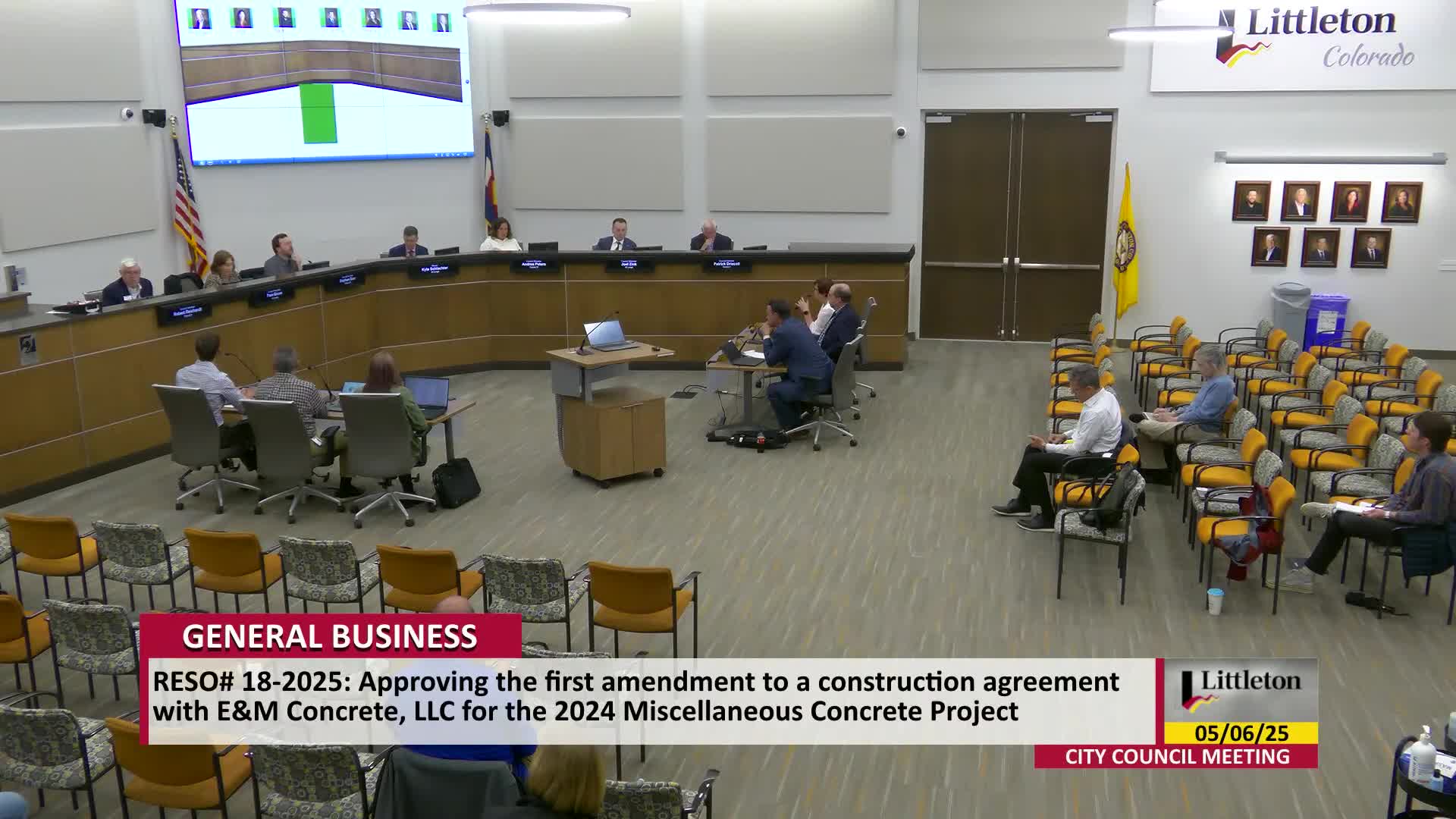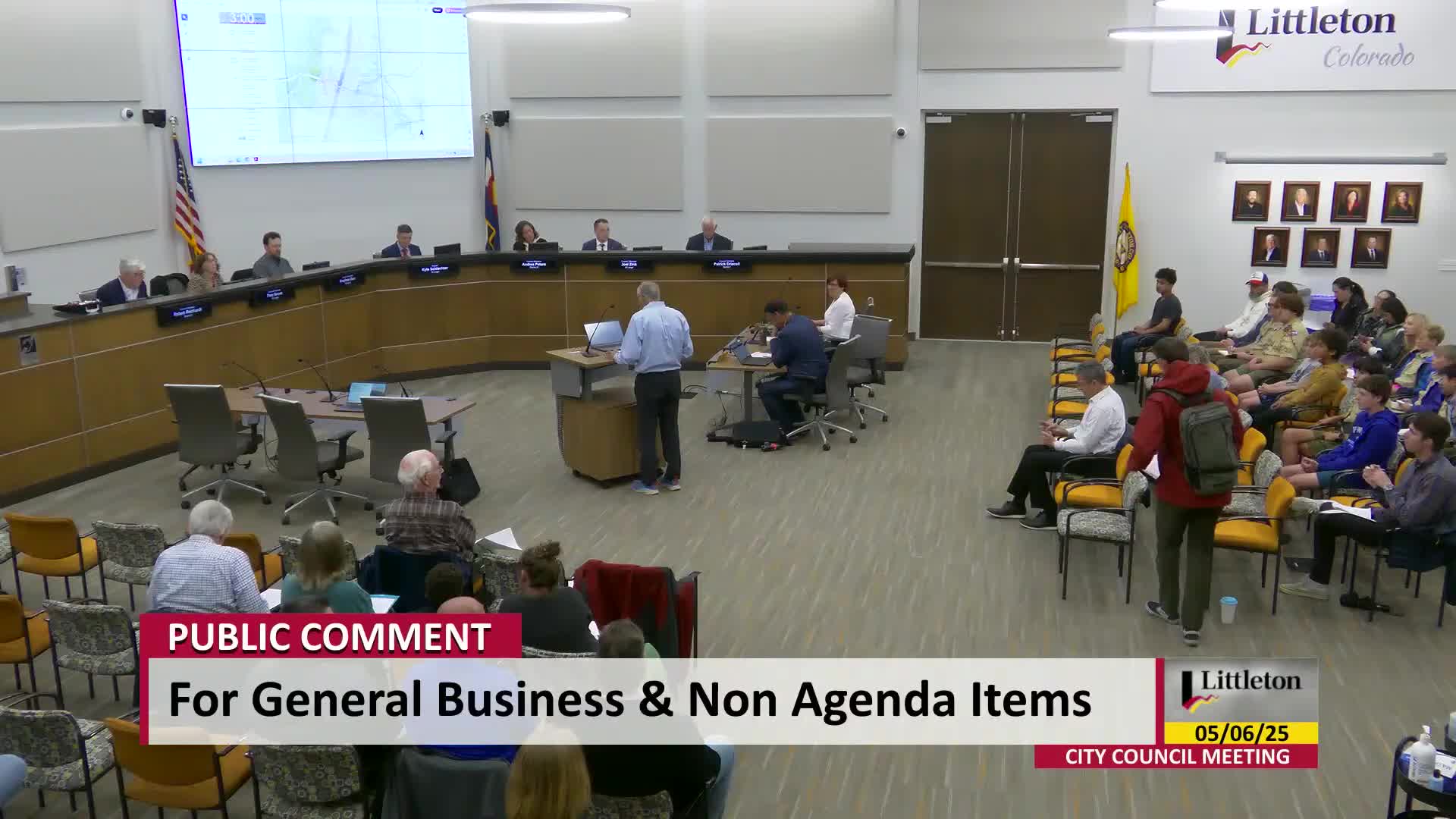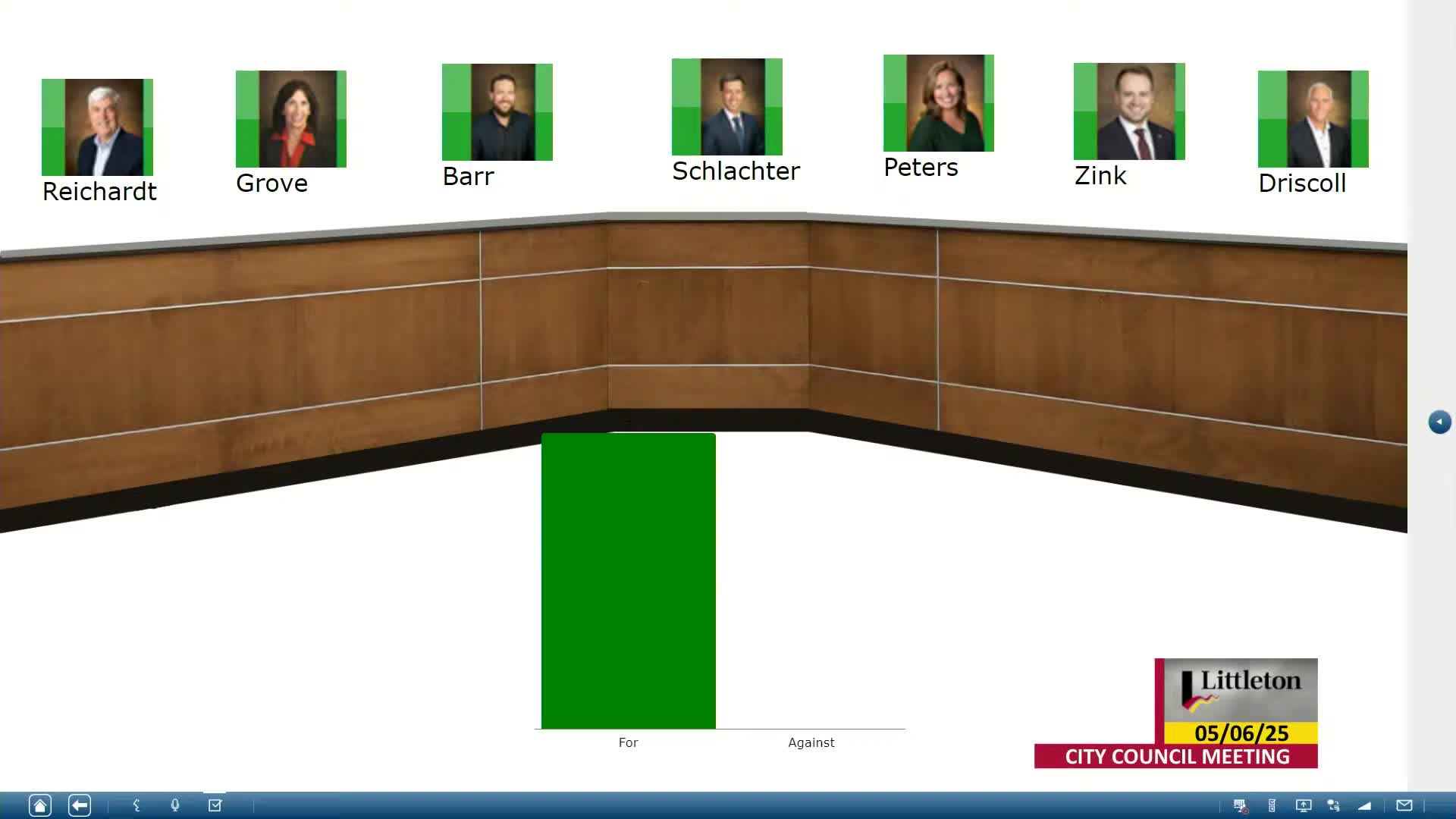Article not found
This article is no longer available. But don't worry—we've gathered other articles that discuss the same topic.

Votes at a glance: Littleton City Council, May 6, 2025 — underpass funding, procurement amendment, Xerox contract, fuel moratorium

Residents and trail users urge Littleton to halt paving of Jackass Gulch/Mineral Spur; dispute over grant claims

